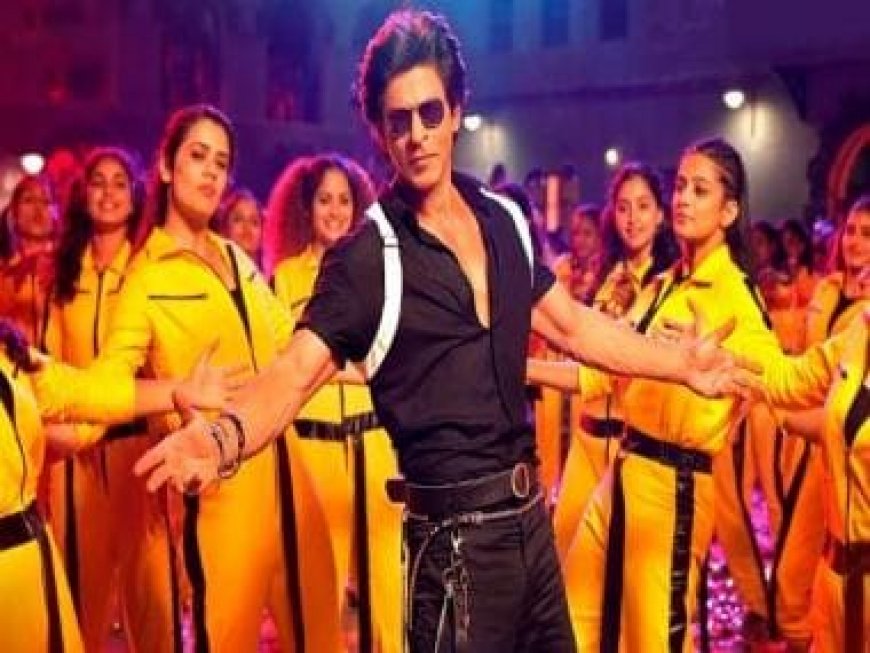The women of Shah Rukh Khan’s Jawan: Revolution will be female
The women of Shah Rukh Khan’s Jawan: Revolution will be female

In a scene from Shah Rukh Khan’s Jawan, the female inmates of a prison take to an akhada with slow-motion comfort and pomp. After a fight is finished, a young Azaad (Khan) leaps into the mud, exemplifying the fearlessness that would eventually become his beacon. At precisely this moment, his mother’s eyes meet that of the inmate standing inside the akhada. Azaad must be allowed to win but he must also be urged to fight, these women seem to wordlessly agree.
For a film that showers its leading man with all the light and attention that cinematic affection can conjure, Jawan more than just tips its hat to its women. For that matter the raw, mainstream machoism of the film feels removed from the more conveyor belt action heroes we have seen of late. For Jawan, the film, or the human form, also represents the tenderness, the consideration that only a man tutored by women, raised in their image, could embody. Though the language might be male, Jawan’s messaging, its tropes a have distinctly female voice.
Azaad’s team in Jawan is made up of six women, each an inmate of the prison that he himself wardens. They are given folksy, stylish identities like ‘The Darling’, ‘The Techie’, ‘The Artist’ and some straightforward ones like ‘The Mother’ and ‘The Doctor’. Each of these women, however aren’t just vogue accomplices, but man the barrack alongside the film’s maverick lead. They aren’t mere provocations, but women carrying burdens and strengths of their own. Burdens that make them natural allies as opposed to curated ones. Not everyone, owing perhaps to an already lengthy runtime, gets a story worth falling back onto. Sanjeeta Bhattacharya plays the hacker Helena, Girija Oak plays the artist, and Aaliya Qureshi plays Jahnvi, all of whom are part of the vigilante group led by Azaad. The rest of them, however, act as endearing pillars of a solid, star vehicle. Here are the ones that stand out, in no particular order:
Doctor Eeram played by Sanya Malhotra
Malhotra is a remarkably accomplished actress capable of donning both goofiness and grief. Here she plays both to an extent. She is the doctor wrongfully accused and disbarred from practice, after she tries to desperately rescue children at grave personal cost. Oxygen cylinders run out as the dean of a medical college refuses to commission a new lot, until his share of the spoils are decided. It’s reminiscent of the extensively reported cylinder shortage during the COVID pandemic and isolated incidents like the one involving Dr Kafeel Khan.
Kaveri played by Riddhi Dogra
More than the role, it’s the name of Dogra’s character that reprises a pop culture phenomenon. Kaveri Amaa obviously raised Khan’s Mohan in the legendary Swades and here she steps in again, twenty years later, as Azaad’s adoptive mother. It’s this kind of meta-references that make or break popular cinema.
Kalki played by Lehar Khan
Possibly the most moving and disturbing of the backstories concerns Kalki. The daughter of a destitute farmer, she witnesses him lose both his possessions and his dignity. It’s a jarring sight, something that pushes her to weaponise the tools of her agrarian heritage. Though a tad overdramatic, her story returns mainstream cinema to the province of the working class.
Lakshmi played by Priyamani
Lakshmi’s backstory possibly holds the widest appeal due to its anti-capitalist stance. It’s a clarion call for clean industrialisation, a canvassing event of proportions that would possibly overhaul the length and breadth of this country. It’s also why she sacrifices herself for a predictable but welcome late twist.
Aishwarya played by Deepika Padukone
As the mother of Azaad and the romantic subject of his father’s endearing gaze, Padukone does trademark Hindi cinema things well. It’s in exile, though, that she looks acutely effective in a role that demands her to both stand out and dissolve into a sea of defiant women. It’s moving despite a handful of dialogue.
Narmada played by Nayanthara
For all the butt that Khan’s many avatars kick in this dizzying actioner, Nayanthara holds her own as a suave, stylish law enforcer. It’s a pity that she doesn’t get to do more but for the runtime that she is holding a gun or dressing down nervous politicians, she is ecstatic fun. Poised and powerful.
Imprisoned but free
In Jawan, the women don’t need rescuing but merely the attention of the people around them. They fight and speak for themselves, and even though they play second fiddle to a messiah-like central act, they aren’t in any way diminished. At one point, when Azaad is captured, they spring into action, propelled by the self-willing confidence of women who know their self-worth comes from them and them alone – not even their ‘chief’. The fact that the resistance, so to speak, is carried out from inside a woman’s prison is symbolic of the power and collective tissue they represent. Power that Azaad acknowledges, when he declares that though the world might belong to men, the prison from where revolutions are spurred, nurtured and raised – much like Azaad by the hundreds of mother figures around him – are all built with the material strength of feminism. It makes biblical sense for the second coming of Jawan to be unambiguously female. Let’s just hope we are open enough to accept it.
Read all the Latest News, Trending News, Cricket News, Bollywood News,
India News and Entertainment News here. Follow us on Facebook, Twitter and Instagram.
What's Your Reaction?



























































